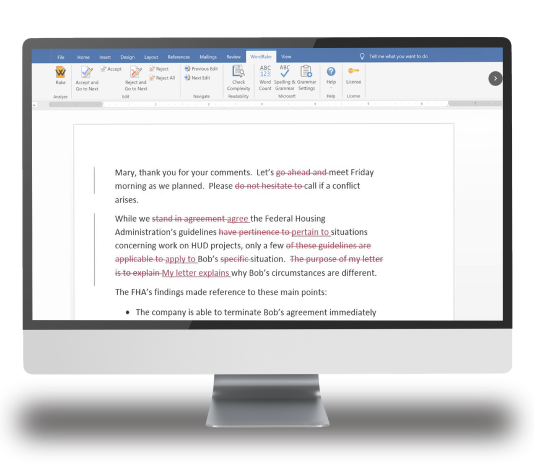

Interestingly, it is not possible to hit “accept all.” You must go through each suggested change and accept or reject each one. It redlines wordy phrases or passive voice and provides improved text. The process is quick it reviews a 10-page document in seconds. Rather than clicking on “View” or “Review,” you click on the “WordRake” tab. It is another tab on the top ribbon of Word. WordRake integrates intoMicrosoftWord and Outlook. It also corrects passive voice and other style issues. It catches phrases the writer might miss. Founded by lawyer Gary Kinder, the program cuts surplus words and follows plain language principles. WordRake “rakes” your document, and its al- gorithm catches poor grammar, wordy or unclear phrases, andmore.

The first two are mainly editing tools the third claims it will research and write mo- tions for you. I decided to test-drive three software programs designed by lawyers: WordRake, BriefCatch, and Compose. You still need to keep your writing skills up to snuff having better writing skills will help you use the tools better. They are useful tools for lawyers, but like all technology, cannot be relied on completely.

Artificial Intelligence (AI) is no longer a futuristic dream for writing faster and better. This is a good moment to consider how technology can improve our legal writing. I n this time of Covid-19, we rely even more on technology.


 0 kommentar(er)
0 kommentar(er)
